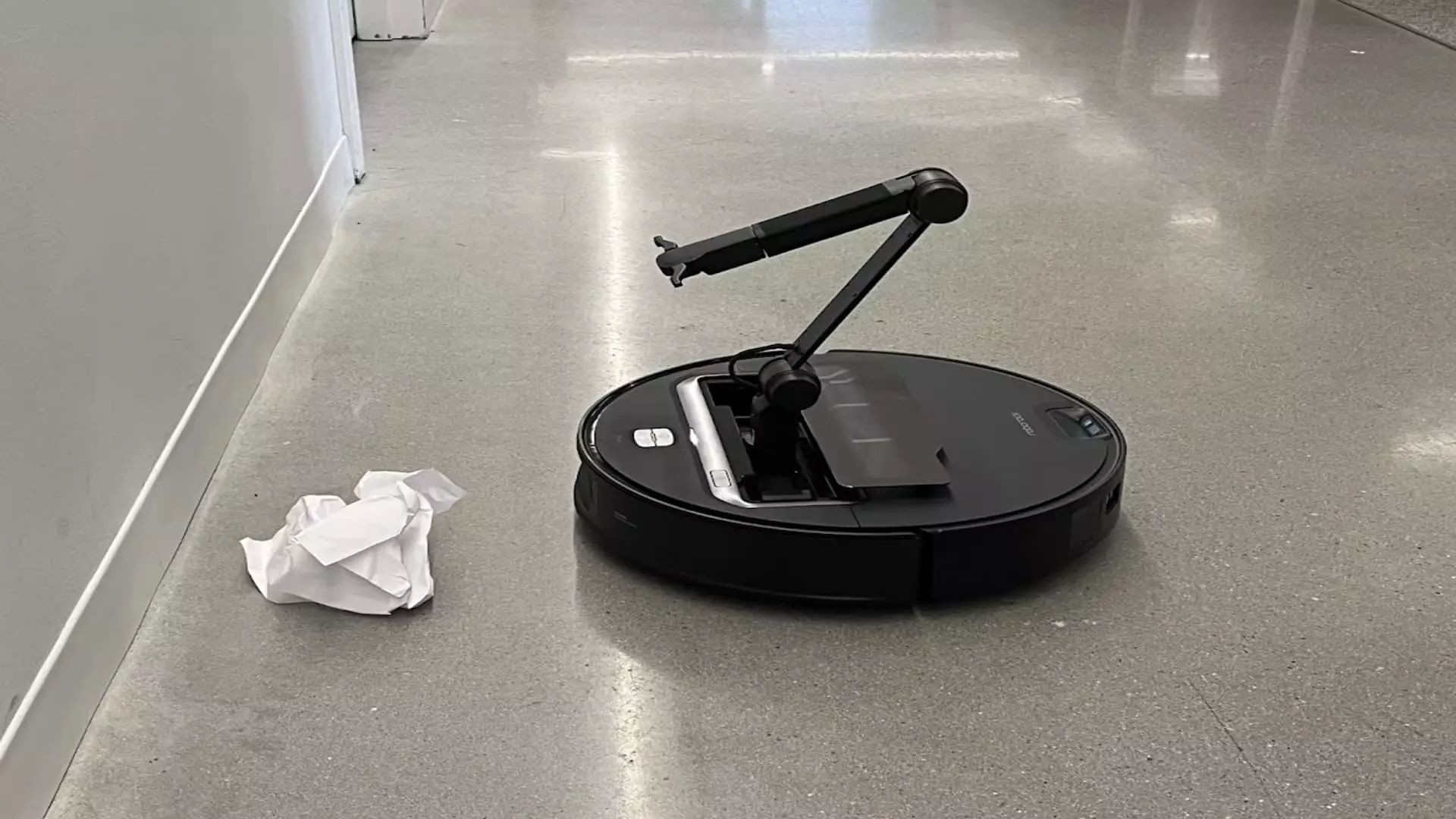The home cleaning industry has witnessed remarkable advancements over the past two decades, primarily fueled by technological innovation. At the forefront of this evolution is Roborock, a Chinese company making waves with its newly unveiled robot vacuum cleaner—the Saros Z70. This latest model introduces a groundbreaking feature: a folding robotic arm capable of identifying and removing common household obstacles like socks. As artificial intelligence (AI) takes center stage in household technology, Roborock’s president, Quan Gang, argues that AI-enhanced robot vacuums will soon become as indispensable as washing machines. With predictions of significant market growth within the next three years, the stage is set for a transformational shift in how we approach home maintenance.
Roborock’s validation of AI’s potential is particularly noteworthy. The Saros Z70 utilizes an advanced AI system developed internally, enabling it to detect and eliminate common inconveniences like small towels and lightweight footwear, as long as they weigh under 300 grams. This capability not only optimizes cleaning efficiency but also reduces the need for user intervention—making the robotic vacuum far more user-friendly. Such innovations suggest we are on the brink of an era where reliance on manual cleaning tasks is significantly diminished.
As the AI revolution progresses, the implications for household automation are substantial. Quan envisions that as AI technologies continue to mature, they will find application in various domestic settings, with robotic vacuums likely leading the charge. Through intelligent navigation and obstacle avoidance, these machines are primed to revolutionize traditional cleaning methods and set the standard for future home appliances.
The market for robotic vacuums has experienced exponential growth since the debut of the Roomba by iRobot in 2002. Today, a plethora of companies, particularly from China, have entered this competitive arena. Roborock has carved a niche for itself since its expansion into the U.S. market in 2018, gaining traction only recently as consumer interest in automated cleaning solutions has surged. Although penetration rates for these devices remain low—hovering just above 10% in developed countries and below 10% in developing regions—the potential for growth is vast.
Roborock’s recent models have received accolades from prominent tech publications like The Verge and Wired, which have lauded their advanced features and overall effectiveness. However, this praise comes amid fierce competition from other manufacturers, including Ecovacs and iRobot, whose products have consistently been recognized for innovation and quality. As companies vie for consumer attention, extensive investment in research and development becomes crucial to staying ahead in this rapidly evolving market.
Recent financial reports reveal a promising trajectory for Roborock. The company’s shares saw a 2.6% increase following the announcement of the Saros Z70, with a notable 10.3% rise in 2024. Furthermore, operating revenue for the first three quarters of 2024 showed a robust increase of 23.2%, amounting to 7 billion yuan (approximately $960 million). Alongside revenue growth, Roborock reported a profit of 1.47 billion yuan, indicating a healthy bottom line amidst increasing competition.
A critical driver of Roborock’s success is its commitment to innovation, particularly through a dedicated focus on AI research. With 9.1% of operating revenue allocated to R&D in the first three quarters of 2024—up from previous years—Roborock demonstrates a keen understanding of the importance of staying ahead in technological advancements. The company’s effort to expand its research team to 300 experts speaks volumes about its commitment to leading the charge in AI-driven solutions for home cleaning.
As we delve deeper into the age of automation and AI integrations, Roborock stands poised to redefine what we expect from household appliances. With innovations like the Saros Z70, the merging of technology and daily chores could fundamentally reshape our understanding of home maintenance. As AI continues to evolve, Roborock and similar companies must remain committed to innovation while navigating the challenges posed by both market competition and consumer expectations.
The future of robotic vacuums seems bright, promising an era where cleaning is as effortless as pushing a button. As more consumers recognize the benefits of these technologies, the adoption rates undoubtedly will surge, transforming robotic vacuums into household staples in a very short time. The intersection of AI and domestic automation is just beginning, and the potential it holds is staggering.

